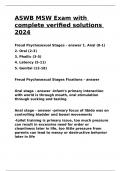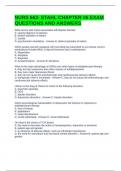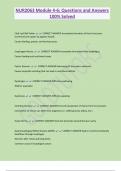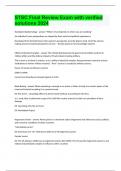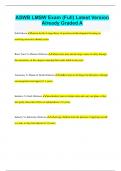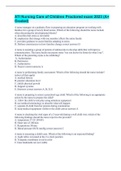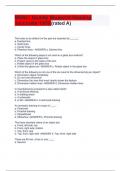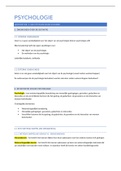Tentamen (uitwerkingen)
ASWB MSW Exam with complete verified solutions 2024
- Vak
- Instelling
Freud Psychosexual Stages 1. Anal (0-1) 2. Oral (2-3) 3. Phallic (3-5) 4. Latency (5-11) 5. Genital (12-18) Freud Psychosexual Stages Fixations Oral stage -infant's primary interaction with world is through mouth, oral stimulation through sucking and tasting Anal stage -...
[Meer zien]
